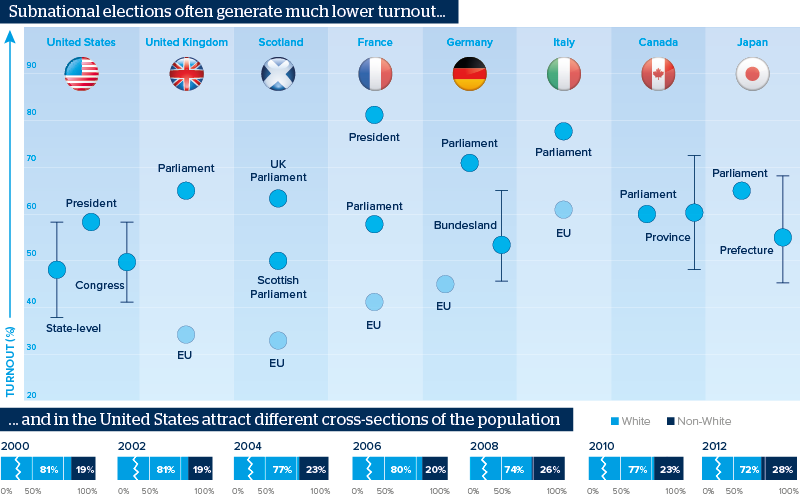Timing could accelerate US and slow UK reform
US congressional and state elections in November are likely to repeat a pattern of declining turnout by up to one-third

Source: National governments, International Institute for Democracy and Electoral Assistance, Cook Report
Outlook
US congressional and state elections in November are likely to repeat a pattern of declining turnout -- by up to one-third -- between presidential and non-presidential years. This is a major variable in US politics, one that was underestimated by Republicans in 2010, when the party's convincing victory led to policies that proved obstacles when confronted by a more Democratic-friendly electorate in 2012.
This pattern of reduced turnout for sub- or supernational elections is repeated in all G7 countries. In the wake of the Scottish referendum, all main UK parties are considering some form of devolution in England. Yet greater power for cities or other constitutional reforms may introduce electoral dissonance, leading to tensions and gridlock between levels of government.
Impacts
- In the United States, Republican party reform may accelerate if Democrats overcome structural disadvantages in Senate races.
- Campaign finance relaxation may see its greatest effects in the states, where 41 out of 50 governors are elected in non-presidential years.
- In the EU, partisan divides between national parliaments and their delegations in Brussels may contribute to long-term anti-EU attitudes.